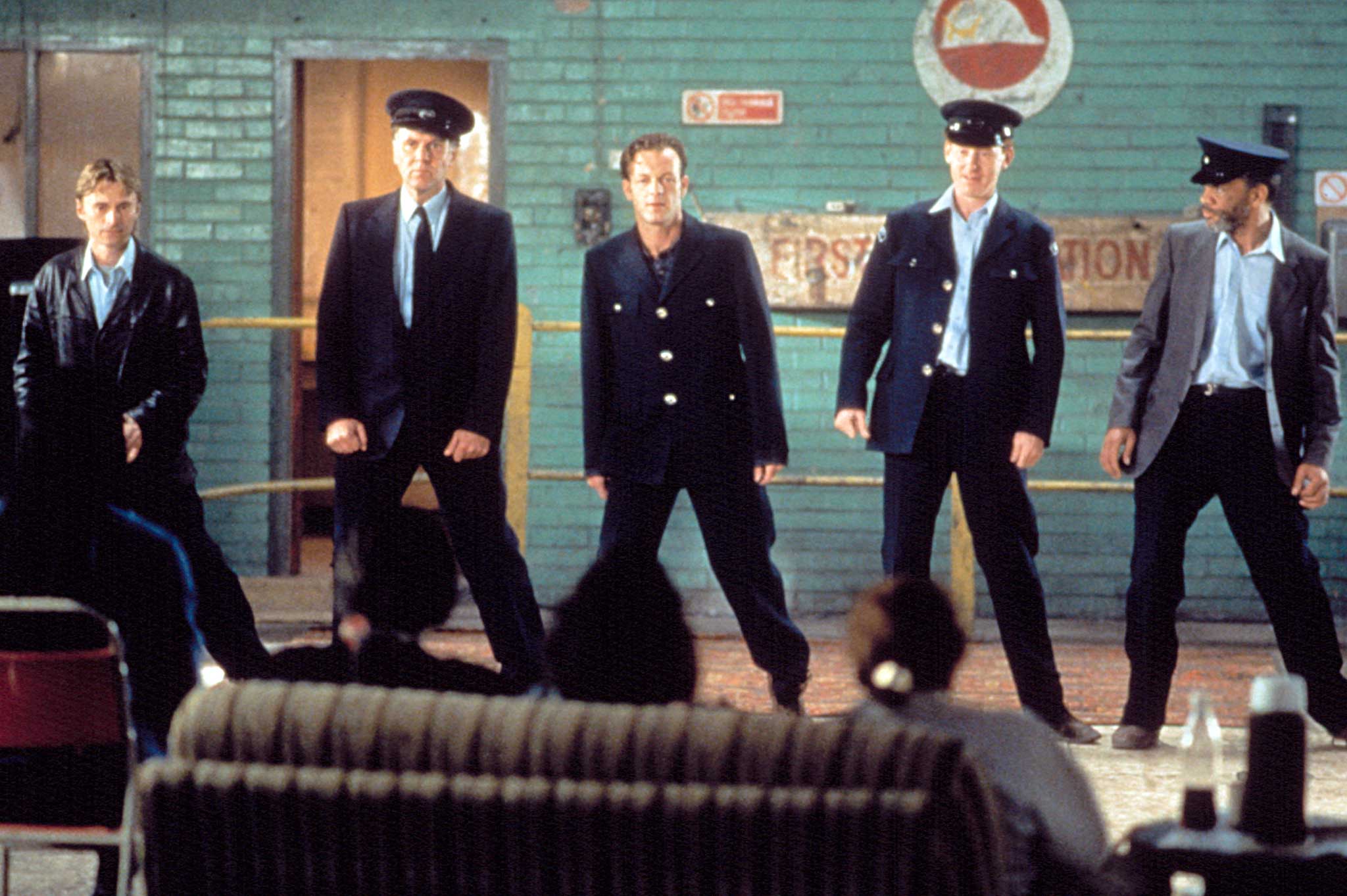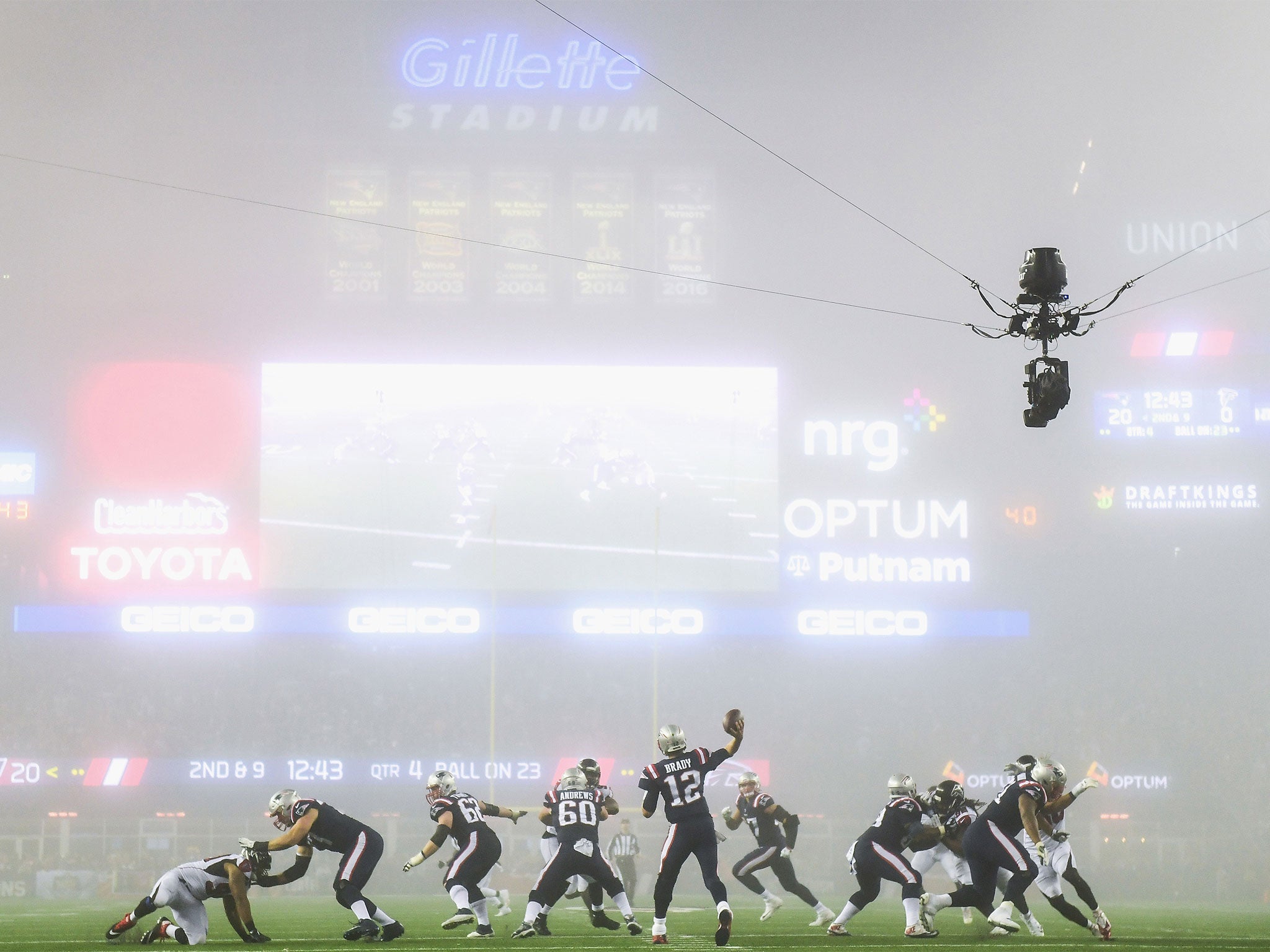Source: https://www.independent.co.uk/life-...gs-britain-england-uk-different-a8138046.html
Did you know all these words and expressions?
Can you post some more?
Every language has a few phrases that don't always translate well -- and the British English has some absolute corkers.
The team at the Business Insider UK office have compiled a list of the best British slang and idioms that define the weird and wonderful British dialect we grew up with.
From our linguistic research, we've confirmed that above all, British people are sarcastic, unsympathetic, and often rather drunk.
Each term is partnered with a description and example. Some entries also feature surprising facts about the phrase's origins, with a few quintessentially British idioms not actually coming from British roots at all.
Whether you think this list is the "bee's knees" or if it's enough to make you want to "pop your clogs," scroll on to discover 88 very British phrases -- in alphabetical order -- that will confuse anybody who didn't grow up in the UK.
"A few sandwiches short of a picnic"

Someone that lacks common sense might be described as "a few sandwiches short of a picnic."
The phrase was first documented in the BBC's "Lenny Henry Christmas Special" in 1987.
"She's great fun, but she's a few sandwiches short of a picnic."
"Anorak"
Although it's more often used as a synonym for raincoat, an anorak is something slightly different in playground slang.
Someone that's a little bit geeky, with strong interests or expertise in a niche area, might be referred to as an "anorak." This probably originates from the "uncool" appearance of anorak coats and the people wearing them.
"Thomas is such an anorak when it comes to train trivia."
"Bagsy"
Calling "bagsy" is the equivalent of calling "shotgun" or "dibs" when something, like the front seat of the car, is offered up to a group.
Schoolkids might call "bagsy" on items from their friends' pack lunches, like an apple or a cereal bar, that the friend isn't going to eat.
"Does anyone want thi--"
"Bagsy!"
"Bee's knees"
This phrase became mainstream in the USA in the 1920s despite its British origins, but its popularity in the States has dwindled since the turn of the century.
The "bee's knees" referred to small or insignificant details when it was first documented in the 18th century. Since then, the phrase has evolved and refers to something at the "height of cool."
"The Beatles are the bee's knees."
"Bender"
Someone on a spree of excessive drinking and mischief is "on a bender."
Benders often last over 24 hours, and so you might say that someone is on "a weekend bender," or a "three-day bender."
"I bumped into him towards the end of his four-day bender. He was a wreck."
"Blinder"
To "pull a blinder" involves achieving something difficult faultlessly and skilfully.
The phrase is most commonly used when the individual has been lucky and the person saying it is in disbelief that the first person has managed to pull it off.
"And did you see that equalising goal in the last minute of injury time? He pulled a blinder there."
"Bloody" or "Bleeding"
This intensifier can be added to practically any sentence in order to demonstrate incredulity or anger.
Some people consider "bloody" offensive (the origins of the word are widely disputed, so we can't be sure why) and it was considered a profanity until the mid-20th century.
The origins of the word are widely disputed. Some believe it's derived from the Dutch word "blute," meaning "bare." Others believe the word is a contraction of the 17th century phrase "by our lady," and is blasphemous. This second theory has been disproved, however, by the slang's documentation predating the popularity of the phrase "by our lady."
Nowadays, "bloody" is used widely -- it's even used in children's films such as "Harry Potter" -- and is arguably one of the most quintessentially British words on the list.
"That was bloody good."
"Bob's your uncle"
The very British equivalent to "Hey presto!" or "Et voila!"
This phrase is used to describe a process which seems more difficult than it actually is.
"Press down the clutch, put it into gear, then slowly ease off the clutch again. Bob's your uncle -- you're driving!"
"Bog-standard"
Something that is "bog-standard" is completely ordinary with no frills, embellishments, or add-ons.
Its origins are somewhat unclear, but a "bog" is another word for a toilet in British slang, adding to the connotations that something "bog-standard" is unglamorous and unspecial.
"How was the hostel?" "Oh, nothing exciting to report. Just your bog-standard dorm, really."
"Boot"
The "boot" is the compartment at the back of the car known as the "trunk" in American English.
"Shove the shopping in the boot."
"Botch job"
A repair job that's been completed in a hurry and will probably fall apart reasonably soon is considered a "botch job."
"Sam did a botch job on these shelves -- they're wonky!"
"Brolly"

Abbreviation of "umbrella."
"Grab your brolly, it's drizzling outside."
"Budge up"
An informal way of asking someone to make room where they are sitting for you to sit down, too, would be asking them to "budge up."
It's similar to "scoot over" or "move over."
"Hey, there's loads of room on that bench. Budge up and make some room for us, too!"
"Builder's tea"
The name of a strongly-brewed cup of English breakfast tea with milk -- the way that tea is most commonly drunk in the UK.
It's common courtesy to offer a labourer or builder working on your house a builder's tea while they're working -- especially if they're working out in the cold. This is probably how the term came about.
"A bacon sandwich and a builder's tea. Now that's a proper breakfast."
"Butchers"
"Butcher's hook" is Cockney rhyming slang for "look." Therefore, if you're "having a butchers," you're having a look at something.
"Would you take a butchers at this broken bike for me?"
"Cack-handed"
A task performed in an awkward or uncomfortable fashion, usually clumsily, would be described as "cack-handed."
"Cack" is old-fashioned slang for faeces.
"He handles a screwdriver very cack-handedly."
"Cheeky"
An act which could be deemed as impolite or shameless, but for some reason comes across as funny or endearing to others, would be described as "cheeky."
"Joe's children are so cheeky -- they tied my shoelaces together last week!"
"Chinwag"

A "good old chinwag" is a good chat, catch up, or gossip with someone.
The action of chatting away -- with the jaw bobbing up and down -- resembles a chin "wagging" like a dog's tail.
"Those two are having a proper chinwag -- I haven't been able to get a word in edgeways for half an hour!"
"Chockablock"
Something full to the brim, or rammed, could be described as "chockalock."
This is sometimes shortened to "chocka."
"We should've taken the other route. This road is chocka!"
"Chuffed"
Overjoyed; full of pride.
"I heard you got the promotion. Congratulations! You must be chuffed."
"Clanger"
An obvious and indiscreet mistake or blunder.
Unrelatedly, "Clangers" was also a children's TV show from the 1970s about pink mouse-like creatures that lived on the moon.
"You dropped a clanger there."
"Codswallop"
Something untrue -- often made up for dramatic effect.
Although no one is completely sure of the word's origins, it could derive from the words "cod" and "wallop," which historically meant "imitation" and "beer" respectively -- implying that "codswallop" is the kind of rubbish you make up when drunk.
"Oh, what a load of codswallop!"
"Cost a bomb"
Expensive.
"Your watch is gorgeous."
"I should hope so, it cost a bomb."
"Cream crackered"
Cockney rhyming slang for "knackered," if you're "cream crackered" then you're incredibly tired.
A "knacker" was the person that slaughtered worn-out horses in the 19th and 20th centuries for their meat, hoofs, and hide. So, if you're "ready for the knacker's yard," you're exhausted beyond relief.
"This week's done me in already, and it's only Tuesday. I'm cream crackered."
"Curtain twitcher"
A nosey neighbour, often caught peering out on their street's activities from a curtained window, might be referred to as a "curtain twitcher."
"He's obsessed with anything that happens on this street. He's a bloody curtain twitcher, but he still won't sign for our packages."
"Dench"

An adjective used to advocate something that is impressive or agreeable, dench is the equivalent of "solid" or "cool" when used in response to someone else.
Its reported creator, British rapper Lethal Bizzle, elusively told the Guardian that the word "means anything you want."
"I'm going to make us spaghetti carbonara for dinner."
"Dench."
"Dim"
Someone that lacks common knowledge might be described as "dim," whilst someone that's intelligent might be described as "bright."
"She's a bit dim."
"Doddle"
An easy task is a "doddle."
The word could be a variation of "toddle" -- like a young child's first steps.
"This will be a doddle."
"Dog's dinner"
A "dog's dinner" is a mess or fiasco -- sometimes also referred to as a "dog's breakfast."
"You've made a dog's dinner of that."
"Faff"
To "faff" is to waste time doing very little.
"Faff" comes from the 17th century word "faffle," which means to flap about in the wind.
"We were just faffing about."
"Fag"
A cigarette.
A "fag end" is also the ratty bits towards the ends of a reel of fabric, which are the worst and the cheapest bits of the reel. Historically, "fags" were the cheaper cigarettes made of lower grade tobacco, however, the slang has spread to encompass all cigarettes.
"Could I pinch a fag, please?"
"Fit"
Used to describe someone physically attractive, usually referring to their physique.
"He's fit."
"Flog"
To "flog" means to sell something -- usually quickly and cheaply.
"Flogging" also refers to whipping a racehorse in order to make it move faster, so there is some speculation into whether you flog goods in order to make them shift faster, too. However, there is no proof for this theory.
"I'm trying to flog my old sofa. Do you know anyone that might be interested?"
"Full Monty"

After "The Full Monty" film was released in 1997, there was some international confusion over the phrase in which it was taken as a euphemism for stripping. However, "the full Monty" actually refers to pursuing something to the absolute limits.
"The full Monty" historically refers to an old tailor called Sir Montague Burton. Going "the fully Monty" meant purchasing a full three-piece suit, a shirt, and all of the trimmings.
"Our Christmas dinner had everything from sprouts to Yorkshire puddings. If you're going to have a roast, have the full Monty!"
"Full of beans"
Someone that's energetic, lively, or enthusiastic might be described as "full of beans."
This phrase could be a reference to coffee beans, although these claims have been disputed.
"Goodness, you're full of beans this morning!"
"Gaff"
"Gaff" is an informal word for "home."
Although the origins of this phrase are largely unknown, a gaff in the 18th-century was a music hall or theatre, and so it's believed to derive from this.
"What are you up to this weekend? We've got a party at our gaff, if you fancy it?"
"Gallivanting"
To "gallivant" means to roam, or to set off on an expedition, with the sole intention of having some light-hearted fun.
Historically, "gallant" described someone brave or valiant, so "gallivanting" is a carefree and confident act.
"Off they go again, gallivanting."
"Geezer"
A "geezer" is a man that could be described as "suave" or "dapper," and is often suited and booted. Men from east London are also commonly referred to as "geezers."
Geezer is thought to stem from the 15th century "guiser," which meant well-dressed.
"That guy's got such swagger -- he's a proper geezer."
"Give me a tinkle on the blower"
"Give me a call" or "ring me." The phrase is sometimes shortened to "give me a tinkle."
"Tinkle" refers to a phone's ring, while "blower" is slang or telephone and refers to the device that predated phones on Naval ships. Sailors would blow down a pipe to their recipient, where a whistle at the end of the pipe would sound to spark attention.
"Give me a tinkle on the blower."
"Gobsmacked"
Astounded; bewildered; shocked.
"Gob" is slang for mouth, so if you're gobsmacked, you're shocked to the point of clasping your jaw in disbelief.
"I was gobsmacked!"
"Gutted"
A football fan watches his team lose.
Not to be confused with literally being disembowelled, someone that says they're "gutted" is devastated or extremely upset.
"I was absolutely gutted."
"Half past"
While Americans are more likely to say "seven thirty" or "five fifty," Brits will more often than not refer to times in "minutes past" the hour. Eg, "half past seven," and "ten to six."
It's unclear why Brits appear to favour analogue time-telling while Americans go for the digital format.
"It's twenty past eleven."
"Hank Marvin"
"Hank Marvin" is Cockney rhyming slang for "starving."
"I'm Hank Marvin" means "I'm hungry" or "I'm ravenous."
Hank Marvin is a British musician from the 1960s and 1970s, and is a pretty obscure reference nowadays. Marvin played guitar in Cliff Richard's backing band in the 1960s.
"When are we going to eat? I'm Hank Marvin."
"Innit"
"Innit" is an abbreviation of "isn't it" most commonly used amongst teenagers and young people.
This phrase is used to confirm or agree with something that another person has just said.
"It's really cold today."
"Innit."
"Leg it"
Make a run for it; run away; scarper.
"That's when all of the lights came on, and so we legged it."
"Long"
Something that takes a lot of effort and probably isn't going to be worth all of the effort, either, could be described as "long." This could be due to the lengths that the person will have to go to in order to complete the task.
Something that is "long" is probably also annoying or aggravating.
"Cleaning the kitchen is long."
"Lurgy"

If someone's "caught the lurgy," they're suffering from cold or flu-like symptoms.
"The dreaded lurgy" originates from 1950s British TV show "The Goon Show," in which one character has to deal with a national epidemic of an unidentified illness.
"Lurgy" is probably based on a mispronunciation of the word "allergy."
"She's come down with the dreaded lurgy."
Making random words past-tense to mean drunk
Brits are known for favouring a drink or two, so much so that almost any noun can be used as a substitute for "drunk."
In his stand-up show, British comedian Michael MacIntyre said: "You can actually use any word in the English language and substitute it to mean drunk. It works."
Examples include "trollied," "smashed," and "gazeboed."
"I was absolutely car-parked last night."
"Miffed"
Slightly irritated or annoyed.
"Miffed" possibly derives from the German "muffen," meaning "to sulk."
"I was a bit miffed, I can't lie."
"Minging"
Something unpleasant, unappetising, or highly unattractive might be described as "minging."
The term comes from the Scottish slang word "ming," meaning faeces.
"What's in that sandwich? Is that ham and tuna? That's minging."
"Mint"
"Mint" might be used when referring to something of the highest calibre.
Derived from "mint condition," which refers to something pre-owned that retains its pristine condition, although something that's just "mint" doesn't have to be pre-owned.
"Those shoes are mint!"
"Mortal"
Derived from the Newcastle sociolect, "mortal" was made widely known across the country in 2011 by reality TV show "Geordie Shore."
"Mortal" describes someone highly intoxicated or drunk in a sloppy manner.
"Did you see Scott last night? He was mortal."
"Nick"
"The Nick" can refer to prison, while "to nick" also means to steal.
The origins of the phrase are largely debated online, however, it's believed that "to nick" as in to steal influenced the slang term for prison, as being imprisoned is similar to being "stolen" away.
"Did you just nick that?"
"Don't get caught, or you'll end up in the Nick!"
"On it like a car bonnet"
This colloquialism might be said by someone that has the situation under control.
"How's the report going, Steve?"
"Don't you worry, Alan, I'm on it like a car bonnet."
"On the pull"
Someone that's "on the pull" has gone out, usually on a night out, with the intention of attracting a sexual partner.
"Pull" can also be used as a verb. If you've "pulled," you've kissed someone.
"You look nice. Are you going on the pull?"
"Over-egg the pudding"
"Over-egging the pudding" means embellishing or over-doing something to the extent that it's detrimental to the finished product.
Although this sounds like an analogy about the chemistry of baking, or putting too many eggs in a cake batter, "egg" actually comes from the Anglo Saxon "eggian," meaning to "excite." This is still used in English in the phrase "egging someone on" to do something.
In "over-egging the pudding" analogy, someone is over-exciting, or over-mixing, the batter too much before it bakes -- resulting in a tough or dense cake.
"We get it -- you've injured yourself. Don't over-egg the pudding."
"Pants"
Rubbish; trash; garbage.
"That is pants."
Par
A "par" breaches social and common courtesy, eg, a disrespectful comment could be seen as a "par."
"Par" can also be used as a verb, eg, "You just got parred."
This slang term could be a British abbreviation of the French "faux pas," meaning an embarrassing or tactless remark in a social situation.
"I don't mean this as a par, but did you remember to wash this morning?"
"Pear-shaped"
A situation which has quickly evolved into an accident waiting to happen might be described as "gone pear-shaped."
The phrase is reportedly old slang from the Royal Air Force and was used to described awry expeditions and flights.
"Well, this has all gone a bit pear-shaped."
"Pea-souper"

A "pea-souper" is a thick fog, often with a yellow or black tinge, caused by air pollution.
The idiom was first used to describe the thick, choking smogs that settled over London, caused by lots of people burning fossil fuels in a close vicinity, as early as 1200. The smogs were compared to pea soup due to their colour and density.
"Be careful when you're driving -- it's a pea-souper out there."
"Pinch punch first of the month"
"Pinch punch, first of the month. No returns of any kind" is a school playground rhyme often exchanged between friends on the first day of a new calendar month, accompanied by a pinch and a punch to the recipient.
If the joker forgets to say "no returns of any kind," the recipient can say "a slap and a kick for being so quick," accompanied by a slap and a kick.
According to the Metro, the playground ritual originates from the medieval times, when a "pinch" of salt was believing to make witches weak, and the "punch" resembled banishing the witches entirely. As a result, "pinch punch, first of the month" was a way of warding off witches and bad luck for the near future.
Nowadays, it's mostly a way for kids to pull pranks on their friends.
"Pinch punch, first of the month!"
"Ha! A slap and a kick for being so quick!"
"Pissed"
"Pissed" usually means "angry" in the US. However, in the UK, someone that's "pissed" is most probably drunk.
"Oh leave him alone, he's pissed!"
"Pop your clogs"
To "pop your clogs" means to die.
This cheery phrase is widely believed to originate from Northern factory workers around the time of the industrial revolution. When they were working on the factory floor, employees had to wear hard clogs to protect their feet.
"Pop" has evolved from "cock," and when someone "cocked" their clogs, the toes of their clogs pointed up in the air as they lay down dead.
"Did you hear what happened to John's old man? He popped his clogs, didn't he..."
"Poppycock"
Something that is nonsense, rubbish, or simply untrue might be described as "poppycock."
This quintessentially British idiom derives from the Dutch "pap" and "kak," which translate as "soft" and "dung."
"What a load of poppycock!"
"Quids in"
Someone who's "quids in" has invested in an opportunity which is probably going to benefit them massively.
"Quid" is British slang for "pounds," eg, "five quid" means £5.
"If it all works out as planned, he'll be quids in."
"Round"
You might buy a "round" of drinks for your friends at the pub, in the understanding that they will each buy you a drink as part of their "rounds" later on.
"Whose round is it? Is it Steve's?"
"No way, these pints were my round."
"Shambles"
A disorganised mess or chaotic environment might be described as a "shambles."
"What's happened here? This is a shambles!"
"Shirty"
Someone short-tempered or irritated might be described as "shirty."
The meaning of this slang has been debated at length. The word "shirt" is derived from the Norse for "short," hence short-tempered. However, other people believe that "shirty" has connotations of being dishevelled.
"Don't get shirty with me, mister."
"Skew-whiff"
Something that is "skew-whiff" is askew.
"Is it just me or is that painting a bit skew-whiff?"
"Skive"
"Skiving" is the act of avoiding work or school, often by pretending to be ill.
"Skive" is derived from the French "esquiver," meaning "to slink away."
"He skived off school so we could all go to Thorpe Park on a weekday."
"Slumped"
Lacking in energy; usually after a long period of exertion.
"Do we have to go to the dinner party tonight? I'm slumped."
"Smarmy"
Someone that comes across as scheming or untrustworthy might be described as "smarmy."
Although the adjective's origins remain largely unknown, early documented uses seem to use the word as synonymous with "smear," further suggesting that someone who is "smarmy" is also "slick" or "slippery."
"Don't trust him -- he's a smarmy geezer."
"Sod's law"
A British axiom that boils down to the idea that: "If anything can go wrong, then it definitely will go wrong."
"Sod's law" is often used to explain bad luck or freakish acts of misfortune. This is more commonly known in the US as "Murphy's law."
"Of course my toast had to land on the floor butter-side-down. It's Sod's law."
"Spanner in the works"
An event that disrupts the natural, pre-planned order of events could be described as a "spanner in the works."
The phrase describes the mayhem caused when something is recklessly thrown into the intricate gears and workings of a machine.
"By getting pregnant, Mary threw a spanner in the works."
"Spend a penny"

To "spend a penny" is a polite euphemism for going to the toilet.
The phrase goes back to Victorian public toilets, which required users to insert a single penny in order to operate the lock.
Although it sounds crude, the phrase is actually considered a polite way of announcing that you are going to visit the bathroom. Historically, only women would announce they were going to "spend a penny," as only women's public toilets required a penny to lock. Men's urinals were free of charge.
"I'm going to spend a penny."
"Splash out"
To "splash out" means spending significant amounts of money on a particular item or event.
If you're "splashing out," it's implied that you're spending money on a treat to mark a special occasion or celebration.
"Wow -- you've really splashed out on this party!"
"Swot"
Similar to "nerd" or "geek" but less derogatory -- someone that takes academic study very seriously might be described as a "swot."
"Swot" can also be used as a verb.
"I haven't seen Tom since he started revising for his exams. He's turned into such a swot!"
"Yeah, he's been swotting like mad for his Spanish exam."
"Take the biscuit"
If someone has done something highly irritating or surprising in an exasperating fashion, you might say that they've "taken the biscuit."
"Taking the biscuit" is the equivalent of taking the nonexistent medal for foolishness or incredulity.
"I could just about deal with the dog barking at 5:30a.m., but the lawnmower at 3 a.m. really takes the biscuit."
"Take the Mickey"
To "take the Mickey" means to take liberties at the expense of others -- and can be used in both a lighthearted and an irritated fashion.
"Take the Mickey" is an abbreviation of "taking the Mickey Bliss," which is Cockney rhyming slang for "take the p***."
"Hey! Don't take the Mickey."
"Tickety-boo"
Something that is "tickety-boo" is satisfactory and in good order.
This classic British idiom may seem stereotypically twee, however, some sources believe that "tickety-boo" in fact derives from the Hindu phrase "ṭhīk hai, bābū," meaning "it's alright, sir."
"Everything's tickety-boo."
"Waffle"
When someone makes a great speech while skirting around a subject or saying little of any value, you might say that they're talking "waffle," or that they're "waffling."
In the 17th century, to "waff" went to yelp, and quickly evolved to mean to talk foolishly or indecisively.
"I wish he'd stop waffling on."
"What a load of waffle!"
"Wally"
Someone silly or incompetent might be described as a wally.
Although its origins are largely debated, the term's meaning has evolved over the last 50 years alone.
In the 1960s, someone that was unfashionable might be nicknamed a "wally," according to dictionary.com.
"Don't put down a leaking mug on top of the newspaper, you wally!"
"Wangle"
If you've "wangled" something, you've accomplished or attained something through cunning means.
"I wangled some first-class seats by being nice to the cabin crew!"
"Whinge"

To "whinge" means to moan, groan, and complain in an irritating or whiney fashion.
"Quit whinging."
"Wind your neck in"
If you want to tell someone to not concern themselves with issues that don't directly affect them, you might tell them to "wind their neck in."
This classic phrase is another way of telling someone that their opinion is not appreciated in the given scenario.
"Wind your neck in and stop being so nosy!"
"Wind-up merchant"
Someone that makes comments just to spark controversy or argument might be labelled a "wind-up merchant."
The "wind-up merchant" will often claim to be making their comments as a light-hearted jest when the recipients start becoming irritated.
If you're "winding someone up," you're making them tense or irritated in the same way you wind up a Jack-in-the-box before it pops.
"Stop being such a wind-up merchant and be serious for one second!"
"Zonked"
Exhausted; tired.
"I was going to go out tonight but when I finished work I was absolutely zonked."
Did you know all these words and expressions?
Can you post some more?



